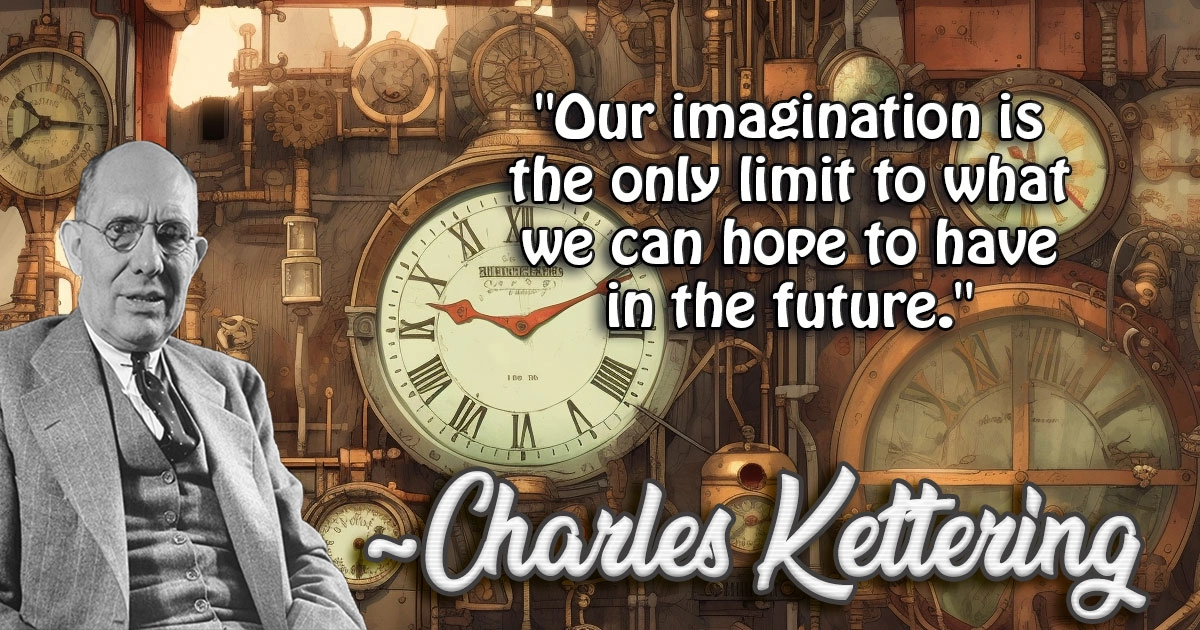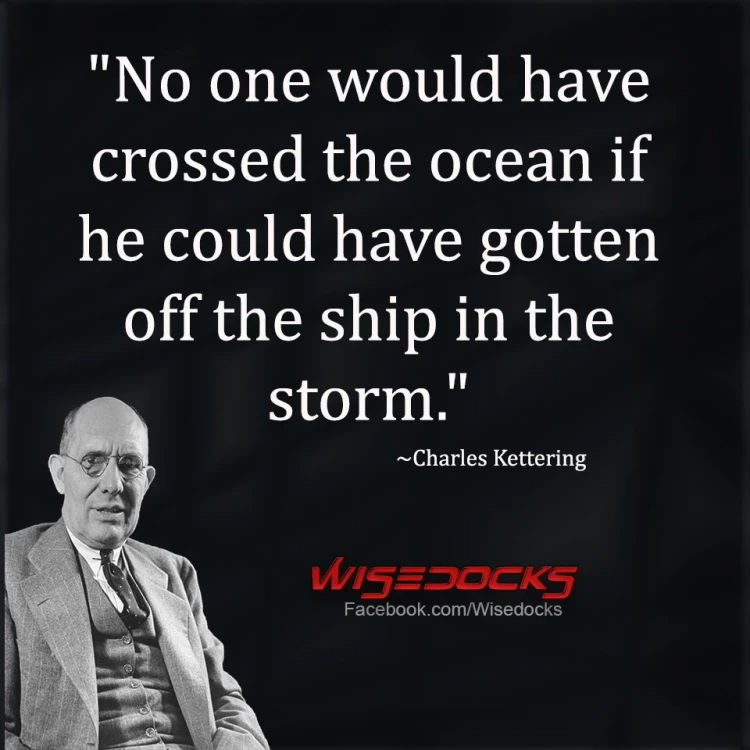Charles Kettering: The Innovator Who Transformed Technology

Charles Kettering
Early Life and Education
Charles Franklin Kettering was born on August 29, 1876, on a farm near Loudonville, Ohio. The son of Jacob and Martha Kettering, he grew up in a modest, hardworking family. From an early age, Charles exhibited a keen interest in mechanics and invention, often tinkering with farm equipment and household gadgets.
His formal education began in a one-room schoolhouse, but he showed such promise that he eventually attended The College of Wooster and then transferred to Ohio State University. However, his academic pursuits were interrupted by severe eye strain, causing him to leave school temporarily and work as a schoolteacher to save money for his return to college. He eventually earned a degree in electrical engineering from Ohio State in 1904.

Early Career and Innovations
After graduating, Kettering joined the National Cash Register Company (NCR) in Dayton, Ohio, where he worked as a researcher and engineer. It was at NCR that Kettering began to make significant strides in the field of electrical engineering. He developed an electric cash register, replacing the manual version, which significantly improved the efficiency and reliability of the machines. This invention earned him his first major success and set the stage for future innovations.
Founding of Delco
In 1909, Kettering co-founded the Dayton Engineering Laboratories Company (Delco) with Edward A. Deeds, a colleague from NCR. Their mission was to develop automotive innovations. One of their first and most notable achievements was the electric starter motor. At that time, starting a car required a hand crank, which was difficult and sometimes dangerous. Kettering's electric starter, first installed in a Cadillac in 1912, revolutionized the automotive industry by making cars easier and safer to start.
The success of the electric starter led to Delco becoming a major supplier for the burgeoning automobile industry. Kettering's work with Delco also included improvements to ignition systems and lighting, further cementing his reputation as a leading innovator in automotive engineering.
Joining General Motors
In 1916, Delco was acquired by General Motors (GM), and Kettering was appointed head of research at GM. His role at GM allowed him to pursue a wide range of projects, driving innovation across multiple areas. One of his significant contributions was the development of the high-compression internal combustion engine, which improved engine efficiency and performance. He also worked on leaded gasoline, which was initially praised for reducing engine knock but later criticized for its environmental and health impacts.
Kettering's influence at GM extended beyond engineering. He was instrumental in establishing the General Motors Research Corporation, which became a hub for scientific research and development. Under his leadership, GM became a leader in automotive technology, introducing many features that are standard in vehicles today.
Advances in Medical Technology
Kettering's curiosity and innovative spirit were not limited to the automotive industry. He had a profound impact on medical technology as well. In collaboration with Dr. Simon Flexner of the Rockefeller Institute, he worked on the development of a portable incubator for premature infants and an early form of magnetic resonance imaging (MRI).
One of his most significant medical contributions was the development of Freon refrigerants, which made air conditioning and refrigeration safe and practical. While Freon was later found to have environmental drawbacks, at the time, it was a groundbreaking improvement over existing refrigerants, which were often toxic or flammable.
Philanthropy and Education
Kettering was also deeply committed to education and philanthropy. He founded the Charles F. Kettering Foundation in 1927, a nonprofit organization dedicated to solving social problems through innovation and research. The foundation has supported numerous initiatives in education, healthcare, and public policy, reflecting Kettering's belief in the power of scientific research to improve society.
He also played a significant role in establishing the Sloan-Kettering Institute for Cancer Research in New York City, in partnership with Alfred P. Sloan, the then-president of GM. This institute became one of the world's leading centers for cancer research and treatment.
Legacy and Impact
Charles Kettering's legacy is vast and multifaceted. His contributions to automotive technology, medical devices, and refrigeration have had a lasting impact on modern society. Kettering was awarded 186 patents throughout his career, a testament to his relentless pursuit of innovation.
His philosophy of practical problem-solving and his belief in the power of scientific research to drive progress continue to inspire engineers, scientists, and entrepreneurs. Kettering's work ethic and vision helped shape the 20th century, making everyday life more convenient, safer, and more comfortable.
Personal Life and Character
Despite his professional achievements, Kettering remained a humble and approachable individual. He was known for his wit and wisdom, often sharing insights that reflected his practical approach to problem-solving. One of his famous sayings was, "I am not interested in the past. I am interested in the future, for that is where I expect to spend the rest of my life."
Kettering was married to Olive Williams Kettering, and they had one son, Eugene Williams Kettering, who followed in his father's footsteps as an inventor and philanthropist. Kettering's personal life was characterized by a strong commitment to family, community, and the betterment of society.
Charles Kettering's life story is one of innovation, perseverance, and a relentless drive to improve the world around him. From his early days on an Ohio farm to his transformative work at NCR, Delco, and General Motors, Kettering's inventions and ideas have left an indelible mark on technology and society. His legacy as a pioneer in automotive engineering, medical technology, and philanthropy continues to inspire future generations to pursue innovation with the same passion and dedication. Kettering's contributions remind us that with curiosity, creativity, and hard work, we can overcome challenges and shape a better future for all.